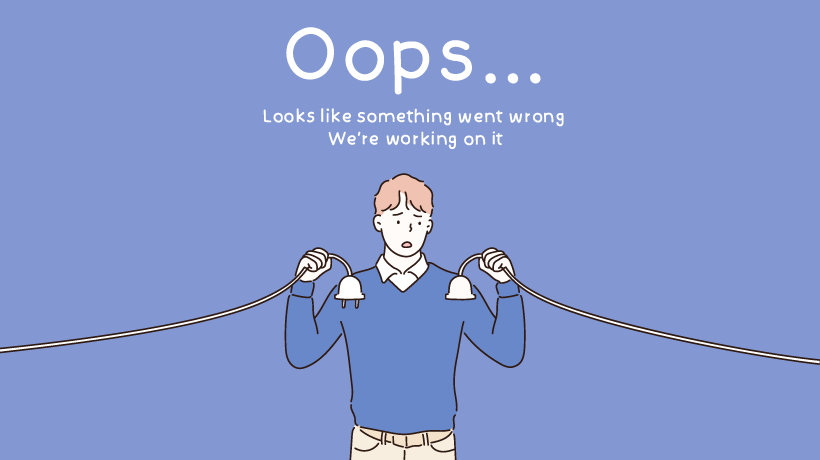Empathy Training In Customer Service: A (Business) Survival Tactic
Anyone that has ever worked in a customer-facing role knows that employing empathy can turn the tide in any demanding customer-related situation. Businesses in the customer service industry are keenly invested in how their customers experience their products, brand, and services. At the same time, they constantly have to address complaints, demands for refunds, and many other incidents that require adept handling. In turn, employees in customer-facing roles often deal with emotionally-charged situations that require quick, efficient resolution. That's why they need to be equipped with the necessary interpersonal skills to ensure the best possible outcome for all parties involved. To cover all of your bases, have you thought about launching empathy training for your customer service staff? In this article, you'll find out why empathic staff is essential when dealing with customers, and get some tips on what to cover in your own empathy training strategy.
How Empathy Training Ensures Customer Service Success
Empathy training aims to cultivate empathy as a skill, as well as show individuals how to incorporate it into their actions. Customer-facing roles should participate in empathy training regardless of industry, the level of their position, or whether they already consider themselves empathic. Not to mention, navigating complex social interactions, communicating effectively, and understanding another person's perspective are all sought-after skills that employees should nurture, even if they aren't working in the customer care industry.
How Empathy Training Benefits The Customer
To ensure great service and even better customer support, your sales staff needs to be able to interpret what customers leave unsaid. Empathy training can help your employees identify nonverbal cues, such as body language and tone of voice, and provide solutions before the situation escalates. Customers that feel understood and supported in their experience can be retained in the long run. Furthermore, demonstrating empathy in interactions with customers helps the latter identify their needs better, as well as request the right kind of assistance. If your customers feel like their needs can be met, emotionally-charged incidents can be avoided.
How Empathy Training Benefits The Company
Striking a balance between focusing on sales goals and focusing on Customer Experience should be a priority for any business that wants to stay on top of the game. Taking away focus from CX to concentrate on profits can cause real damage to your organization's longevity, revenue, and reputation. In the world of customer service, brand image is everything; the way customers perceive your brand can affect every aspect of your business. Subsequently, word-of-mouth can be a powerful tool that, if utilized correctly, boosts brand loyalty and customer retention. Investing in an empathy training program can truly alter the CX game, as it helps improve customer relations by focusing on quality over quantity. In turn, satisfied customers spread the word about their positive experiences, and your company establishes a great reputation in the customer service industry. It's a win-win that provides an advantage in an extremely competitive market.
How Empathy Training Benefits Customer Service Employees
While empathy training in customer service is primarily geared to optimize CX metrics, it also offers tremendous benefits to the organization's inner workings. Employees can cultivate a more efficient, collaborative work environment by better understanding and relating to their co-workers' experiences. They are able to create deeper interpersonal connections and, simultaneously, devise ways to experience and manage emotionally-charged situations with levelheadedness without internalizing negativity or succumbing to stress.
Empathy training can also teach effective ways to de-escalate said situations to ensure more positive outcomes. As many employees in this industry struggle with emotional exhaustion, training your staff on how to process intense emotions and maintain composure and an empathic attitude can be of great service to their professional and personal life. Essentially, empathy training can work as fortification for your company's operation, and your staff's mental fortitude.
Tips To Establish Empathy In Customer-Facing Interactions
- Listen carefully
Fully focusing on what someone is saying without interrupting or judging showcases respect and validates one's feelings. It helps to de-escalate situations because most dissatisfied customers simply want to be heard. - Acknowledge the problem
Acknowledging the reason behind a customer-related issue can aid in the mitigation of the situation. If your customers feel like your representatives don't understand them, they'll also feel like they can't solve their problems. - Use compassionate language
Addressing a difficult situation by behaving in a hostile manner will only make things worse. Instead, the use of compassionate language can help moderate the situation and make customers feel like their truth is being heard. Some examples of compassionate language include apologizing, sharing a similar experience, and asking questions for clarification. - Set boundaries
Employees should be treated with equal respect; setting communication boundaries with hostile customers needs to precede any other action. Mutual respect should be at the foundation of any employee-customer interaction. Remember, how you allow your staff to be treated is a reflection of everything your company culture represents. - Focus on body language
Being aware of one's body language as well as your own elucidates nonverbal cues that can be interpreted to benefit the outcome of the situation. Empathy training can help employees identify those cues, recognize the customer's emotional state, and proceed in solving their issue much more efficiently. - Provide mutually beneficial solutions
Your company's policy can probably address how specific incidents are handled before they even occur. So, as a difficult situation arises, it's good to keep your team up-to-date with some suitable solutions to a range of issues. However, sometimes the incidents that occur cannot be solved from a handbook. With the right training, your staff can devise and provide mutually beneficial solutions to address a dissatisfied customer's issue. - Thank your customer
By showing appreciation even to the most difficult customers, you establish a company reputation that's centered on customer care and appreciation. While thanking your customers isn't a solution in itself, it can become a stepping stone to establishing a better communication framework. It's also a courtesy! - Attempt to keep communication lines open
After the resolution of the incident, customer service staff can use their empathy training to keep an open line of communication with said customer. Regardless of whether the situation is resolved or unresolved, customers will need reassurance that their feedback has been taken into account by the company and that no similar incidents will reoccur. Keeping an open line of communication also helps companies retain their customers for longer.
Conclusion
Empathy is a necessary skill in both personal and professional spheres. Knowing how to cultivate and practice it is of even greater importance, especially in the customer service world. To fully leverage empathy and its potential, you may ponder if launching an empathy training program for your customer service agents is worth it—it is! Empathy training, if executed correctly, has the potential to completely transform your customer-related interactions and help your business establish a good reputation in the CX realm. If you need some help with getting started, here's a list of the Top Content Providers For Soft Skills Training to help your representatives become their most empathic selves!








